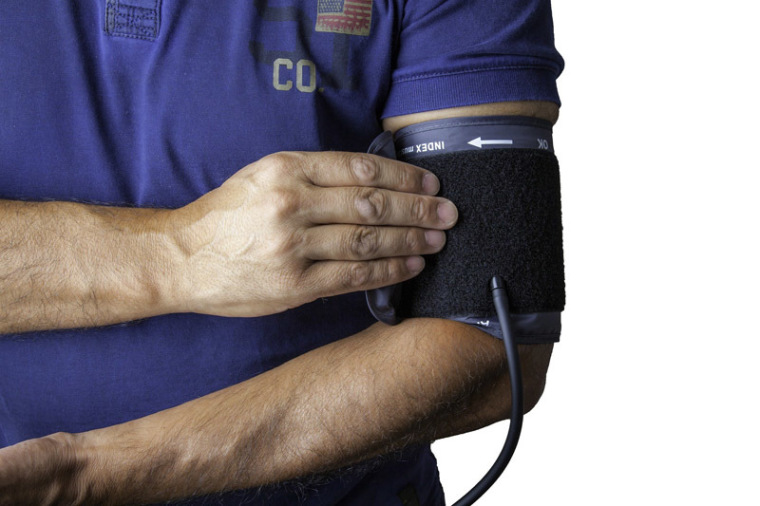
Yesterday as I sat watching rust-coloured iron solution drip slowly through an IV and into my body, I reflected on how my life would change in the coming days and weeks. For the almost 6 months I have been pregnant, my body has simply rejected iron; and with my body already drained of nutrients by the knitting of God’s most precious of gifts, I was left with severe anaemia.
When the blood lacks iron, it can no longer produce haemoglobin, which is essential to transporting oxygen throughout the body. Over the last few months, I’ve had to say ‘no’ to opportunities, for the simple reason, “I just don’t have the capacity right now.” I’ve had to conserve what little energy I have for the fear that I’ll find myself in a hopeless state of exhaustion, unable to fulfil the commitments I care about most. In many ways, my body has forced me from a state of joy into a state of survival. Blood without iron is blood without life.
In recent weeks, parliament made an address to commemorate the 14th anniversary of the nation’s apology to Australia’s Indigenous Peoples for the generational devastation caused by the unjust policy. Prime Minister Scott Morrison, in extending his apology to the Indigenous community made a focus on forgiveness, saying,
“Sorry is not the hardest word to say, the hardest is I forgive you. But I do know that the path of forgiveness does lead to healing, it does open up a huge opportunity, it does offer up release from the bondage of pain and suffering that no simple apology on its own can achieve.”
As Christians, our entire identity is built on the forgiveness offered up to us by Christ on the cross, we understand this sentiment to be entirely true; yet for many Australians, Indigenous and non-indigenous alike, the Prime Minister’s statement offended deeply, only fuelling outrage and hurt.
I believe Scott Morrison was sincere in his desire for healing. As a Christian man, he spoke out of the freedom of having been forgiven and redeemed by his Saviour, and having surely felt the bitter roots of unforgiveness in his own heart in the past; like so many of us, learning to forgive as we have been forgiven. As a Christian man addressing a brother, he spoke in love. As the Prime Minister addressed the nation, he spoke without sensitivity.
No one better understands the pain suffered by our Indigenous communities than God. He watched his precious children be torn away from Him by the curse of sin, submitted Himself to carry that burden, then laid himself down to be murdered all in the name of forgiveness and reconciliation. It is by His Blood that we can recognise our debts have been forgiven, and forgive others’ debts through the abundance of that Grace.
But what of those that don’t yet know the blood of Jesus?
Before one can donate blood, a test is performed to measure their iron and haemoglobin levels. If those levels are too low, for their safety, they are deemed unfit to donate. While we hold on to the promise and prophecy of our Great South Land of the Holy Spirit, as it stands, our nation suffers from severe anaemia; an anaemia that has been inherited through the generations, the anaemia of having been bled dry by hurt, and the anaemia of having been starved of hope.
To ask forgiveness from those still living in the brokenness of generational trauma is as reckless as taking blood from a patient with a knife still in their flesh. There are those who hope to forgive, but simply have to conserve what little they have left, and those who find the proposition only drives the knife deeper. Both are suffering alike, and the onus is not theirs to take first steps.
If we as a nation, are to truly take the step toward healing the past, we as Christians have an enormous responsibility in reaching out to our Indigenous brothers and sisters whose spirits have been crushed under the weight of loss and suffering. If we are to hope for a future of new life and reconciliation, we must lead first with Jesus; His grace to heal the wounds inflicted on each of us and by each of us, and the abundance of life in His blood,only by which we have any hope of forgiveness.
The onus falls on us to offer an infusion of God’s grace into this anaemic nation, it takes us offering from the abundance of our salvation; living in active love and care towards those who have been starved of hope. The Prime Minister was right, forgiveness releases us from the bondage of pain and suffering, but it begins with the forgiveness poured out from the cross; to take this lifeless blood, and replace it with the living, healing blood of Christ.

Laura Wardrop has undertaken further study in the areas of Linguistics, Art, and Ministry. She currently works a graphic artist and painter, and takes a keen interest in exploring all areas of human creativity as a reflection of God’s character. She lives with her husband Stephen and two children in Brisbane.